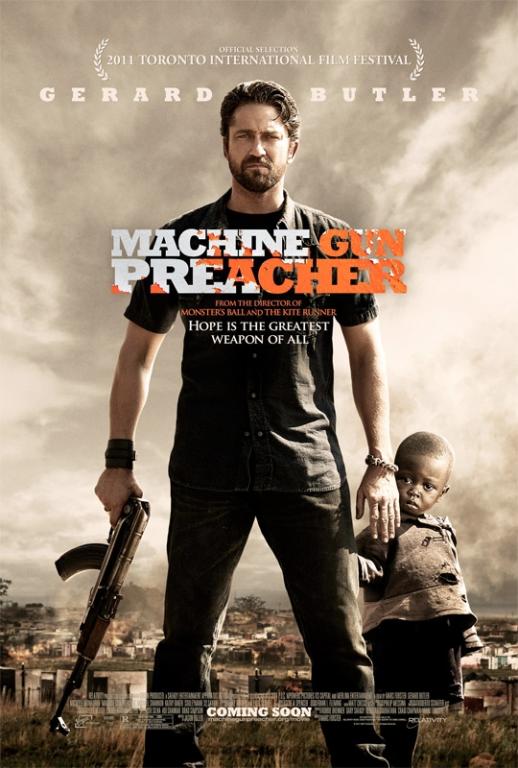 When actor Gerard Butler first read the script for the movie Machine Gun Preacher, “I thought, are you kidding me?” he says. “This couldn’t all have happened.”
When actor Gerard Butler first read the script for the movie Machine Gun Preacher, “I thought, are you kidding me?” he says. “This couldn’t all have happened.”
But it did and much more, writes Michele Vu for the Christian Post.
“The man has experienced more than most people would in 10 lifetimes,” says Butler, who portrays the real-life Sam Childers in the movie.
The film tells the story of an American heroin-addict-turned-African-child-crusader. It’s easy to suspect Hollywood exaggerated the story for entertainment purposes, writes Vu. However, moviegoers will “be surprised to know that the real life of Childers was too much for even Hollywood.
Screenwriter Jason Keller says he couldn’t include some of Childers’ earlier life in the script because the details of a drug-dealing addict were “too intense.”
Childers, now 49, didn’t even finish high school, writes Vu:
He started using drugs at age 11 and grew up to be a drug dealer and a completely amoral adult, revelling in sex and violence. He writes in his 2009 book, Another Man’s War: The True Story of One Man’s Battle to Save Children in the Sudan, that he wouldn’t even flinch drawing a knife blade to someone’s neck if the person irritated him.
That all changed when he kicked his drug addiction, became a preacher and managed a thriving construction business in Pennsylvania, however, writes Vu, the story doesn’t end there:
In 1998, Childers went to Uganda as a volunteer for a construction project. That one trip, which was supposed to last only a few weeks, drastically changed the course of his life, of his family, and of hundreds of children in southern Sudan.
After witnessing firsthand how the militant rebel group Lord’s Resistance Army burned down villages, cut off people’s lips, and forced children to be killing machines, Childers couldn’t return to his previous life in the United States. Since the trip, he spends most of the year in northern Uganda and southern Sudan, where his ministry, Angels of East Africa, runs an orphanage that currently supports some 170 children.
The film does contemplate and challenge Childers’ controversial tactic of using violence to overcome violence.

